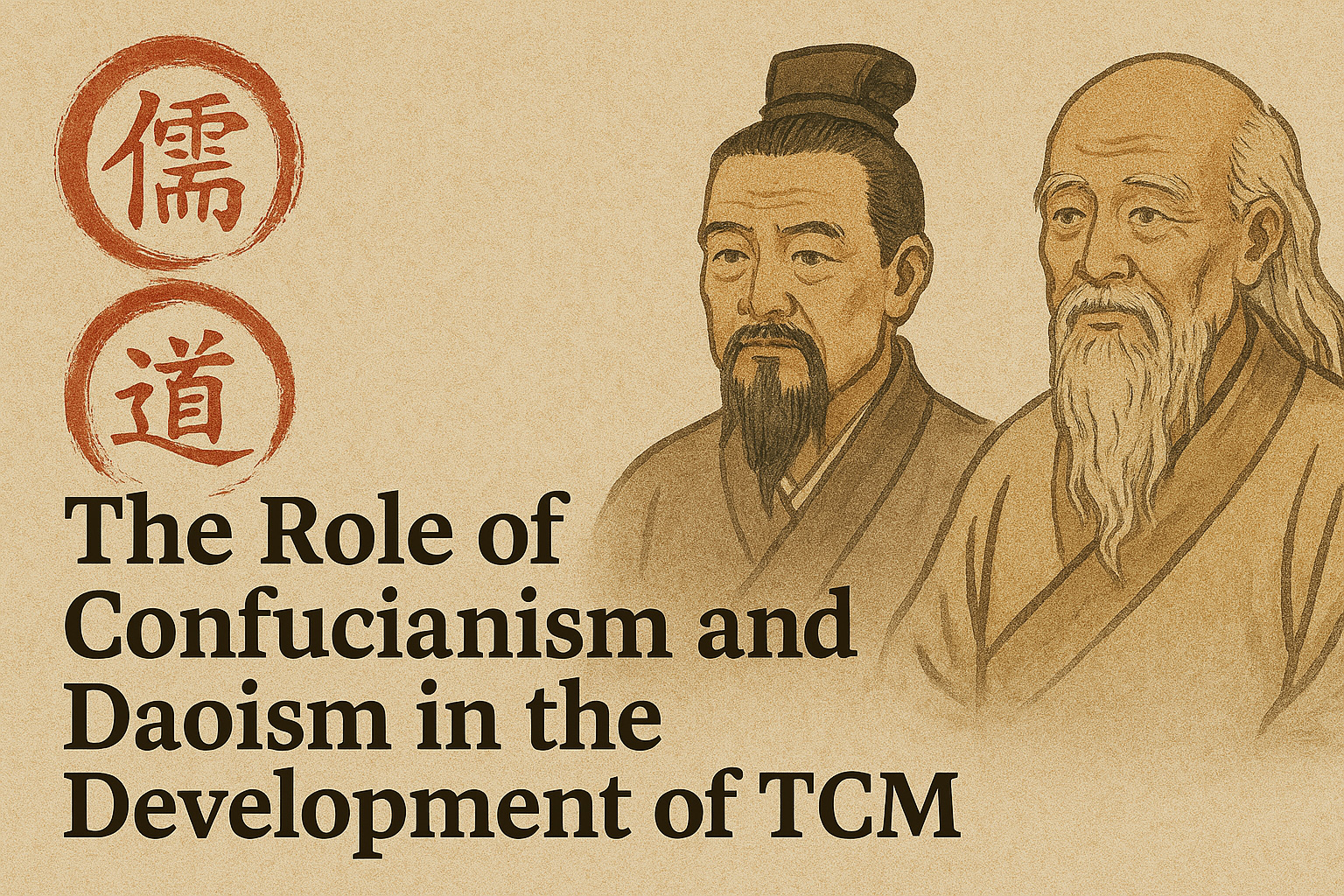Traditional Chinese Medicine (TCM) is not merely a clinical system — it is the embodiment of Chinese philosophy applied to health, life, and nature. Two of the most influential philosophical schools in Chinese history, Confucianism and Daoism, deeply shaped the theories, values, and practices of TCM.
To understand TCM fully is to appreciate the cultural soil in which it grew. This article explores how Confucian and Daoist thought contributed to TCM’s development and enduring worldview.
🔶 Daoism: Harmony with Nature and the Dao
Daoism (道家), founded on the teachings of Laozi and Zhuangzi, emphasizes:
- Living in harmony with the Dao (Way)
- Non-action (Wu Wei, 无为) — aligning with nature rather than resisting it
- Observation of natural cycles — seasons, day-night, Yin-Yang flow
➤ Influence on TCM:
- Yin-Yang Theory and Five Elements reflect Daoist cosmology.
- Health is the result of balance and flow, disease the result of blockage or excess.
- Daoism inspired the TCM view of prevention over intervention.
- Practices like Qigong, meditation, and breathwork emerged from Daoist health cultivation traditions.
🧭 Quote from Dao De Jing:
“He who follows the Dao is at one with the Dao. He who is virtuous is at one with virtue.”
🔶 Confucianism: Ethics, Order, and Humanism
Confucianism (儒家), based on Confucius (Kongzi) and his disciples, emphasizes:
- Moral cultivation and virtue (德)
- Hierarchy, responsibility, and social harmony
- Filial piety (孝) and benevolence (仁)
➤ Influence on TCM:
- Medicine as a moral profession — physicians are expected to act with benevolence and integrity.
- Emphasis on the doctor-patient relationship, seen as one of trust and care.
- The body as a microcosm of society, with organs acting in roles of minister, general, etc. (Zang-Fu theory with social metaphors).
- Confucian values strengthened the idea of lifelong learning and moral responsibility for healers.
📜 Quote from Confucius:
“To cure disease and save lives is the highest expression of humaneness (仁).”
🔶 Complementarity of Daoism and Confucianism
Though often seen as contrasting, the two philosophies complemented each other in shaping TCM:
| Aspect | Daoism | Confucianism |
|---|---|---|
| Focus | Nature, spontaneity | Ethics, social order |
| Health View | Flow and balance | Duty and self-cultivation |
| Treatment Style | Gentle, preventative | Responsible, compassionate |
| Cultural Output | Qigong, alchemy | Medical ethics, classics |
Many famous TCM physicians — such as Zhang Zhongjing and Sun Simiao — integrated both philosophies in their practice.
🔶 Legacy in Classical Texts
- Huangdi Neijing (Yellow Emperor’s Inner Canon) — contains strong Daoist cosmology.
- Qianjin Yaofang (Essential Prescriptions Worth a Thousand Gold) by Sun Simiao — reflects Confucian medical ethics.
- Zhenjiu Jiayi Jing (Systematic Classic of Acupuncture and Moxibustion) — merges philosophical, cosmological, and ethical threads.
🔶 Conclusion
Traditional Chinese Medicine is deeply rooted in Chinese culture, with Daoist principles guiding its cosmology and therapeutic logic, and Confucian ethics shaping its humanistic values and professional conduct. Understanding these philosophical foundations enriches not only our grasp of TCM but also the holistic spirit in which it has served humanity for millennia.


发表回复